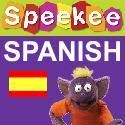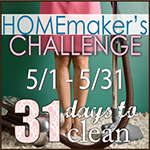This past year my 4yr. old daughter qualified for speech services from our local school district. This was new territory for me. Thankfully, my good friend Pam, who is a Speech and Language Pathologist, helped answer some of my questions and concerns.

What can I do at home to help my toddler/preschooler with speech and language development?
Become a narrator. The best thing anyone can do is talk to his/her child. Reduce distractions (turn off everything that has a screen), look your child in the eye and talk, talk, talk. Talk to your child about everything s/he is doing like a sport commentator:
"Honey, you are sitting on the floor. You are playing with blocks. I see a red one, a blue one, and a green one. You are stacking the blocks."
Talk about what you are doing.
"Mommy is washing dishes. These dishes are so dirty. I’m putting a little soap in the water (while putting in dish soap). I’m scrubbing the food off (while scrubbing.)"
The "official" terms for these strategies are "parallel talk" and "self talk." You will feel self conscious at first, but this how children learn language-- by mass exposure.

While implementing these strategies, be mindful of HOW you speak. You need to help your child tune into you, the speech model, or you will literally be wasting your breath. To do this, turn off the technology (t.v.'s and computers are loud and pull the visual attention away from you,) slow your rate of talking and slightly increase your volume. If you think you speak slowly enough, you don't. Slow down a little more. Even if you are a loud person, go ahead and turn up your volume a bit. So often the reason children have delayed speech or language is fluctuating hearing loss. Fluid collects in the middle ear, which causes a temporary hearing impairment. If the fluid becomes infected, you see symptoms and get treatment. However, if the fluid does NOT become infected, you will not know the fluid is there (no symptoms) but your child will still not be able to hear everything. Your child can't learn speech and language very easily if s/he cannot hear it. If you make a habit of talking a little louder and little slower all the time, you help your child hear and learn whether fluid is present or not. Talking slower and louder may make you feel a little self-conscious until you get used to it, but it is worth the benefit of your child gaining skills and confidence.
Parallel Talk and Self Talk are strategies you can employ at all times--in the car, in public, and at home. Don't set aside time to do these, just make them a habit. If your child is in the room, use Parallel Talk and Self Talk. This will motivate your child to talk.
Do you have any questions for the SLP? If so, leave them in the comments section or send an email, and Pam will address them in another guest post.

Pam has been an SLP for 16 years. She is currently working with students in a k-12 school, but previously worked with toddlers and preschoolers. She loves her job and working with kids. She is a proud mother of two lovely girls, and when not working she can be found in the kitchen, in the garden, or in front of the latest episode of What Not To Wear or Extreme Couponing. You can follow Pam on
Twitter for more speech tips.
Labels: speech and language




 I've got a guest post up at Itty Bitty Learners: ABC Spray 'N' Spell
I've got a guest post up at Itty Bitty Learners: ABC Spray 'N' Spell 
 Tonya, From Live the Adventure, has a post with some travel resources for families. I found some helpful information and links there.
Tonya, From Live the Adventure, has a post with some travel resources for families. I found some helpful information and links there.















































